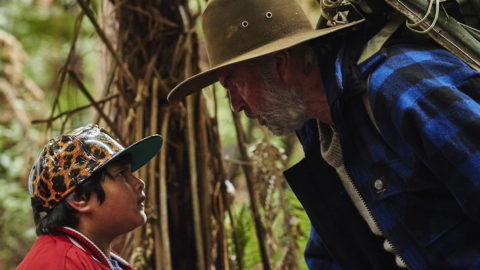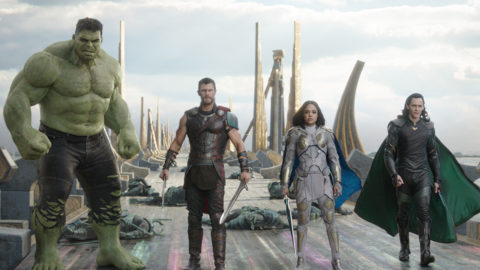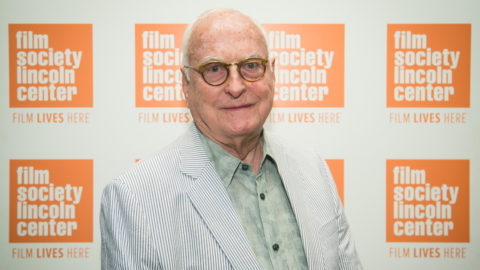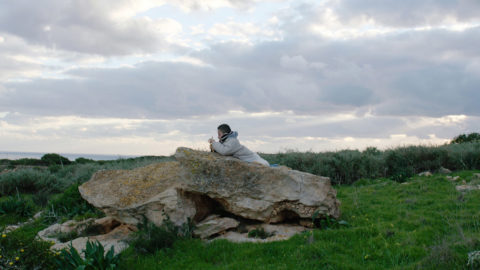News to Me: Pedro Almodóvar, Julia Ducournau, Taika Waititi
Pedro Almodóvar
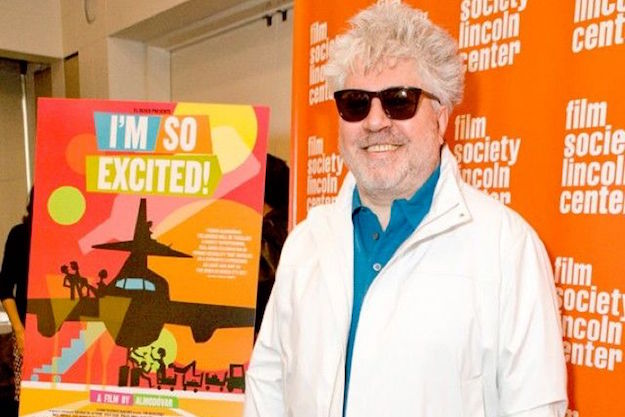
Pedro Almodóvar (Photo: Philip May)
In July, production is scheduled to start on Pedro Almodóvar’s 21st feature, Pain & Glory. According to a statement from Almodóvar’s production company, El Deseo, the film concerns an aging director’s “[f]irst loves, second loves, his mother, mortality, an actor who worked with him in the past, the seventies, the eighties, his present, the void, the unbearable void brought by the fact that he cannot keep shooting.”
Pain & Glory reunites Almodóvar with frequent collaborators Penélope Cruz and Antonio Banderas. Another familiar face will be behind the camera: cinematographer José Luis Alcaine, whose decades-long career includes Almodóvar’s Women on the Verge of a Nervous Breakdown and Volver, and Asghar Farhadi’s Everybody Knows, which opened the Cannes Film Festival in May.
Alcaine, 79, was already excited to shoot Pain & Glory.
“It’s going to be a terrific film, a very personal one for Pedro. All of his movies are personal, but over the years, his cinema is growing denser and denser, leaving only its core,” he told Film Comment at Cannes.
During the festival, Alcaine was busily familiarizing himself with the screenplay of Pain & Glory, which is structured around the director-character’s meetings, “some physical and others remembered after decades,” according to El Deseo. Alcaine’s detail-oriented preparation frees his intuition to take over on set, allowing the film’s emotional arc to guide his approach.
“This happens without talking much to the director. In fact, I don’t talk much with Pedro, but we understand each other completely,” he said.
Alcaine praised Almodóvar as one filmmaker who preserves the power of single-camera shooting, in an era of multiple-camera coverage.
“Many movies are shot with three, four, or even eight cameras. That destroys any notion of the director’s point of view. There are still directors who shoot with only one camera, such as Asghar, Pedro, or Brian De Palma,” he said.
Despite the film’s premise, Almodóvar would likely avoid a purely autobiographical reading.
As the director once explained while discussing Bad Education, whose protagonist is also a filmmaker, “I do use elements of my own story . . . to understand better the path I’ve followed, but I use myself as fictional material in order to create characters and scenes. In that sense, there could be room for confusion. It’s not my life, though, even if it might look it.”
Films on the Horizon

(Photo from @TaikaWaititi)
Filming is underway in Prague on Taika Waititi’s Jojo Rabbit, a satire in which a socially awkward boy finds an imaginary friend in Adolf Hitler (played by Waititi himself). Scarlett Johansson co-stars . . . Raw director Julia Ducournau has begun drafting a script for her next feature, another genre film . . . Gianfranco Rosi (Fire at Sea) anticipates a two-year shoot for his forthcoming Nocturne. The director will embed himself at Middle Eastern borders during the night so that he might examine how “borders have changed the destiny of people.”
Readings
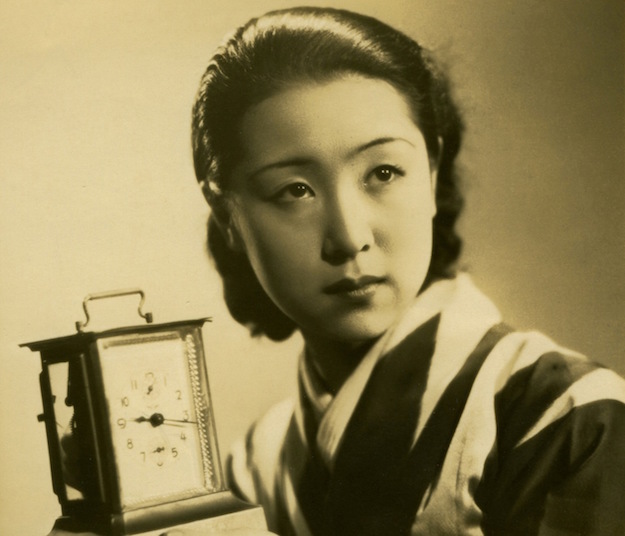
Kinuyo Tinaka
✸ The Academy of Motion Picture Arts and Sciences invited 928 new members today, continuing its push to deepen its membership.
✸ Stanley Cavell passed away last Tuesday at the age of 91. In Film Comment’s September/October 2005 issue, he considered the relationship of Mr. & Mrs. Smith to the tradition of classical remarriage comedies.
✸ Tom Grater reports for ScreenDaily on the startling gender breakdown of industry attendance at major film festival markets—only 35 percent of high-level employees with decision-making power are women, while women account for 64 percent of lower-level employees (interns, assistants, and coordinators).
✸ Columbia’s Women Film Pioneers Project has published an exceptional profile of Kinuyo Tinaka, who, in addition to her 250-plus acting credits, was the only female director helming features in Japan during the postwar Golden Age. Alejandra Armendáriz-Hernández discusses how Tanaka’s six films “disrupted the dominant representations of women in Japanese cinema at the time . . . [while] working within the boundaries of mainstream cinema.”
✸ Sight & Sound’s Albertine Fox covers the Godardian sound collages of Soundwalk Collective’s new album, What We Leave Behind. Granted access to Godard’s personal archive, in which the director maintains hundreds of hours of live audio from film shoots, the group crafted pieces that sounded to them like “little bits of life in a cemetery.”
✸ The Berlinale has appointed two new co-directors: Carlo Chatrian, the artistic director of the Locarno film festival, and Mariette Rissenbeek, the managing director of German Films. Rissenbeek will lead business and operations, and Chatrian (who will leave the Locarno festival in August at the close of its next edition) will direct the programming arm. They start in 2020, after current chief Dieter Kosslick’s contract expires.
✸ If you couldn’t get enough of James Ivory in last week’s frenzy of news, here’s more to look forward to: the director/producer/screenwriter has entrusted a collection of annotated scripts, notebooks, and correspondence to the Morgan Library & Museum in New York.



